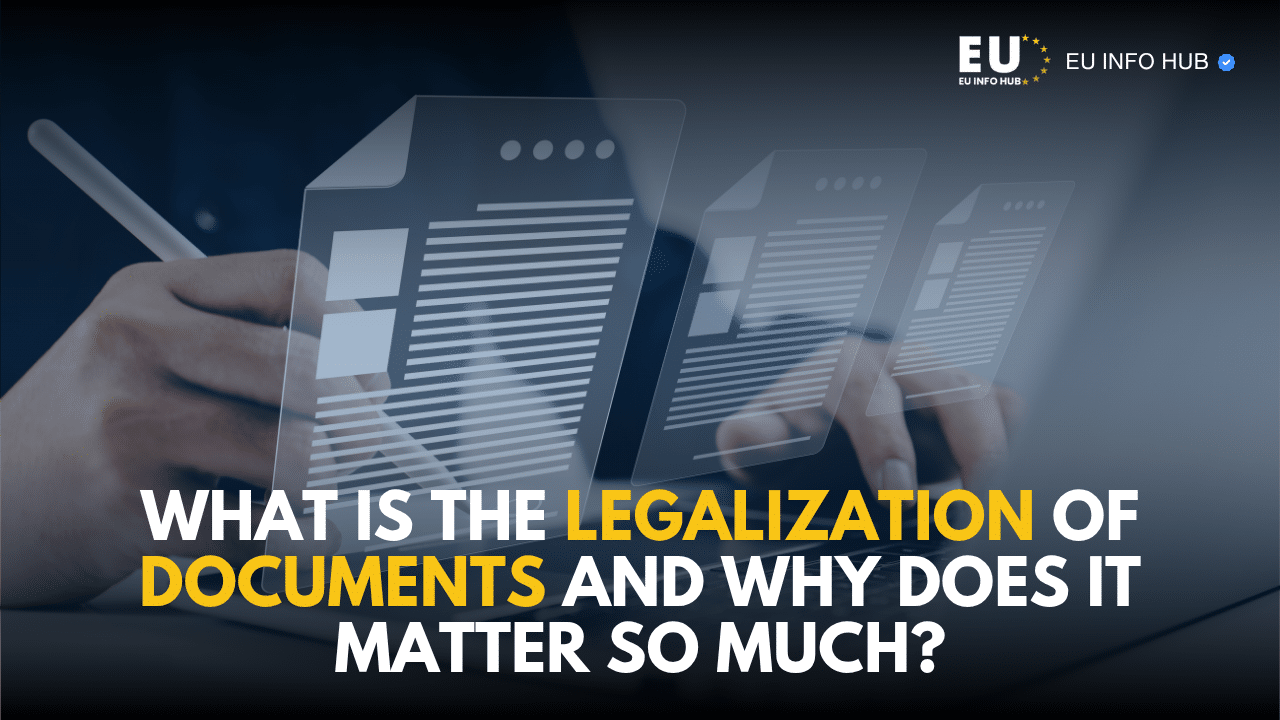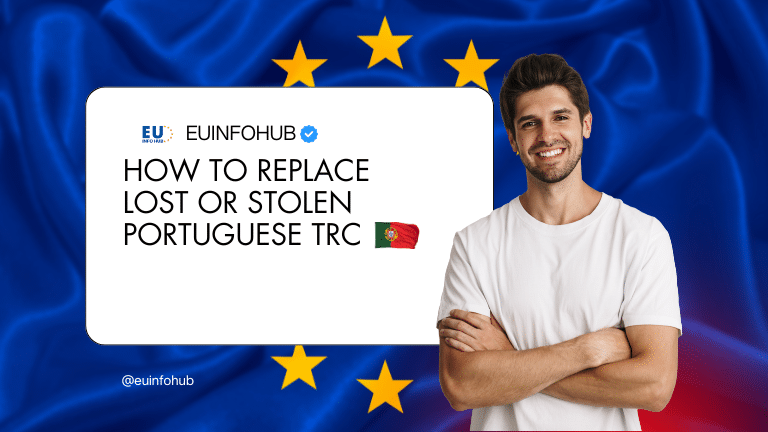Have you ever sent your birth certificate, diploma, or marriage certificate overseas and were told it’s invalid? If so, you’re not alone. Countless people are astounded to learn that government documents from one country do not automatically operate in another country.
The reason? Without adequate legalization of documents, your paperwork might hold no legal value abroad.
Let us analyze what legalization of documents really entails, the specific documents it requires, and how to manage it in an optimal manner.
What Is the Legalization of Documents?
Legalization of documents is a procedure that confirms the authenticity of the document and its acceptance for intended uses in a specific country. This is not just a routine matter. It contains a series of checks by different authorities to confirm that the document is authentic and adheres to the regulations of both the issuing and recipient nations.
Consider it a visa for your documents. Just as you cannot enter a specific country without possessing a stamped passport, legal systems will not allow your documents to pass through without being legalized first.
Why is Document Legalization Important?
Consider receiving an overseas employment offer only to find out your university degree has not been validated or applying for a spouse visa only to get refused because your marriage document is not accepted. In the absence of document legalization, these irritating hurdles occur often.
Countries require document legalization to:
- Prevent forgery or misrepresentation
- Maintain the integrity of foreign legal systems
- Confirm that documents have been issued by a competent authority
- Ensure legal rights and responsibilities are enforced properly
Hence, if you’re moving abroad, marrying abroad, seeking education abroad, or expanding business abroad, legalization of documents is not a choice but a necessity.
Types of Legal Documents That May Require Legalization
Many different documents may need to go through the legalization of the document process. The list of legal documents generally fall into four main categories:
1. Personal Documents
These are used to establish your civil status or identity. They often include:
- Birth certificates
- Marriage or divorce certificates
- Police clearance
- National ID or passport copies
- Death certificates
Such documents are required for visas, family sponsorships, or residency permits.
2. Educational Documents
If you study or work outside the country, you have to verify your documents. Typical documents that fall under this category are:
- Diplomas and degrees
- Academic transcripts
- School leaving certificates
- Letters of enrollment or graduation
These are typically requested by universities, licensing boards, or employers.
3. Corporate and Business Documents
When companies operate internationally, a number of legal and commercial documents may need legalization:
- Articles of incorporation
- Memorandums of association
- Certificates of origin
- Business licenses
- Invoices or contracts
These documents are critical when opening bank accounts, signing contracts, or participating in tenders abroad.
4. Legal and Notarial Documents
These documents carry legal authority and often involve courts or attorneys:
- Power of attorney
- Court judgments
- Affidavits
- Wills and estate documents
- Adoption papers
If used in legal proceedings or to assign rights across borders, these documents must be legalized.
Legalization vs. Apostille: What’s the Difference?
It’s easy to confuse legalization with apostille, but they are two separate processes used by different countries.
| Criteria | Legalization | Apostille |
| Purpose | For use in countries not in the Hague Convention | For use in Hague Convention countries |
| Process | Multi-step: Notary, Foreign Ministry, Embassy | Single-step: Apostille stamp |
| Countries | UAE, China, Qatar, Egypt, etc. | USA, UK, France, Germany, etc. |
If your destination country is not part of the Hague Convention, you’ll need legalization of documents instead of an apostille.
How Does the Legalization of Documents Work?
The process can be lengthy, but it’s methodical. Here’s how it usually works:
Step 1: Document Preparation
Begin by making sure that your initial document is complete and free of mistakes. In certain situations, you might require a certified version.
Step 2: Notarization
Typically for private or academic documents, a verification by an authorized notary public in your country of residence will be needed. This shows that the signature or seal is verified and authentic.
Step 3: Authentication by Government Authority
Subsequently, the document is sent to your country’s Ministry of Foreign Affairs (or similar) to confirm the authority of the notary or institution.
Step 4: Embassy Legalization
The document will then be sent to the embassy or consulate of the country where the document is intended to be used. They will then check that all signatures and seals match with their records.
Step 5: Translation (If Needed)
In cases where the document is not in an official language of the migrating country, a certified translation is often required. The translation will also need legalization.
What is the Timeline for Legalization?
Depending on the type of document, the country of destination, and whether you need a translation, timing can vary. On average:
- Basic document legalization takes 5 to 15 working days
- Urgent processing may take 2 to 3 days, but it costs more
- Embassy approvals can add extra time depending on their schedule
What Are the Costs Involved?
Fees differ from country to country. Here’s a rough guide:
- Notary: €10–€50
- Government authentication: €15–€30
- Embassy legalization: €40–€150
- Certified translation: €20–€100
Consult official rates with regard to your host country. The changes on rates are sometimes made overnight or without any prior notice by the embassies concerned.
Common Mistakes to Avoid
Most people experience the most annoying delays and denials in working on their foreign papers. It is these small mistakes that cause the biggest headaches.
Here is the list of common mistakes while you’re working on legalization of documents along with how they could be avoided!
1. Submitting Incomplete or Expired Documents
Your document would likely not be accepted if it is incomplete or contains missing pages, stamps, or outdated dates. So, confirm that the sections are complete and that the issue date is valid to the intended destination country.
2. Skipping the Notarization Step
Not all documents require notarization, and when they do, it is an integral part of the process. Omitting notarization may lead embassies or ministries to completely deny your documents. Always verify if notarization is required before moving forward.
3. Incorrect Document Format
Certain countries enforce rigid formatting guidelines. This includes all aspects such as the dimensions of the paper, signature locations, and the position of seals. Ensure that your document meets the particular criteria of the country in which it will be utilized.
4. Using Uncertified Translations
If your document is not in the official language of the destination country, a certified translation is necessary. Utilizing unapproved translators or translating documents yourself always leads to dismissal.
5. Waiting Until the Last Minute
Legalization may require several days or sometimes weeks, depending on the embassies, ministries, and the specific type of document. Procrastinating until the final moment is dangerous and can result in missed deadlines or travel hold-ups. Begin the process early to prevent unnecessary stress
Wrap Up
The legalization of documents may seem like a monotonous administrative task, yet it is crucial for your success overseas. Whether you’re seeking a new job, education, or business abroad, proper legalization guarantees your documents convey the correct legal terminology.
Need assistance with your document legalization? Reach out to the EU Info Hub now and allow specialists to manage it for you, quickly, simply, and precisely.
FAQs
1. Do I need to legalize all documents for travel or work abroad?
Only the documents required by the receiving authority must undergo legalization. Typically, these include legal documents like degrees, birth certificates, or contracts.
2. Can I do the legalization process myself?
Yes, although it may take a considerable amount of time. A lot of people choose to use expert services to prevent mistakes and hold-ups.
3. Is a certified translation always required?
Not always, but if your document is not in the language of the target country, a certified translation will probably be necessary, and it must also be legalized.
4. How long is a legalized document valid?
There isn’t a formal expiration date, but numerous embassies need documents to be released within the past 3 to 6 months to accept them.
















1 thought on “What Is the Legalization of Documents and Why Does It Matter So Much?”